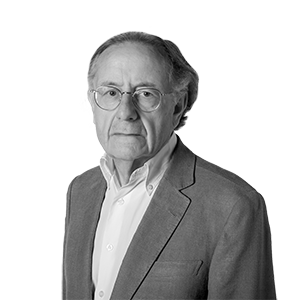The transition: from dictatorship in Europe


"The dictator died in bed and the dictatorship in the streets," Nicolás Sartorius said some years ago. The first part is obvious: that's how it was. And it expresses the reality of a subjugated society, entrenched in fear, incapable of bringing about a democratic rupture. The second part is more debatable. If the streets had to wait for the dictator's death, it's because no one was able to sufficiently mobilize the population and gain enough support at all levels to overthrow a regime—let's not forget—built on the military victory in the Civil War. That is to say, on the army and fascist ideology. No: Francoism wasn't brought down by the streets, where mobilizations were still sufficiently limited and fear had resigned a large part of society. What the dictator's death revealed was the grip of a regime incapable of building a continuation. And it is here that an interesting process of distancing occurred among the various powers that had become comfortable under Francoism, who showed a certain degree of adaptation to the new reality.
The dictatorial regime that ousted the Republic after a brutal civil war had become a relic, a legacy of the totalitarian past that Germany and Italy had already overcome. It is clear that Franco's decision not to engage with Hitler and to remain neutral in World War II saved his dictatorship. And the United States' inaction in completing the liberation of Europe gave him room to continue and allowed him to overcome any obstacles that might arise. American democracy has a long history of protecting dictators, always using the specter of communism as a pretext. In fact, the Transition was only possible because the weakness of the Soviet threat had begun to become evident, although there would still be some upheavals before 1989. The dictatorial exception that Spain represented in democratic Europe, especially after the liberation of Portugal, was obvious. And it was a source of discomfort.
In this context, the main obstacle to change lay in the army and in a sector of the Spanish bourgeoisie and the state apparatus well-accommodated to the dictatorship. But the rules of the economic game were in flux, and some pillars of the regime failed to adapt. Certainly, the army's resistance was crucial, although within its ranks, exceptions were beginning to emerge, capable of understanding that we were in a period of epochal change. So, ultimately, the question was speed: whether change would come soon or whether the period of resistance of institutional Francoism would be long and chronic.
Undoubtedly, the figure of King Juan Carlos was important: since the monarchy had been restored by the dictator, the king was marked by this inherent dependence, which he has never explicitly renounced. But who would occupy the presidency of the government would be key. The absence of Carrero Blanco acquired symbolic importance. And when Adolfo Suárez appeared, with a renewed government including figures like Fernández Ordóñez and Joaquín Garrigues, it was clear that things were moving and that, within the Spanish upper classes, certain business and professional sectors understood that, in their own interest, the necessary mobilization had to take place. This controlled metamorphosis of the regime, which united various spheres, especially the military and part of the judiciary, gradually adapted, despite some setbacks.
The failure of Tejero and Armada's coup attempt served to turn the page. The hegemony of the PSOE—its overwhelming victory in 1982—gave Felipe González power that served to further consolidate the regime, despite some authoritarian tendencies that have developed in a worrying way since his retirement. It is surprising that those who could claim to have achieved the consolidation of democracy now often emerge with authoritarian outbursts and misplaced melancholy. But when one has held power for a long time, it seems difficult to accept that one's time has passed.
Now, exactly fifty years later, we have entered a worrying phase. But it is not the escalation of Catalan separatism (Basque separatism has already reaped enough) that has awakened authoritarian impulses. It is above all the reactionary turn of the European right—increasingly embraced by the PP, which has now formalized its association with Vox—that is most worrying in Catalonia, in Spain, and in Europe. The fascism from which we freed ourselves fifty years ago threatens again through post-democratic authoritarianism remotely controlled by the great powers of financial and industrial capitalism. It was not the Transition we dreamed of, but it has been reasonably possible and with the necessary doses of conflict. Now we must not spoil it with the rest of Europe.
